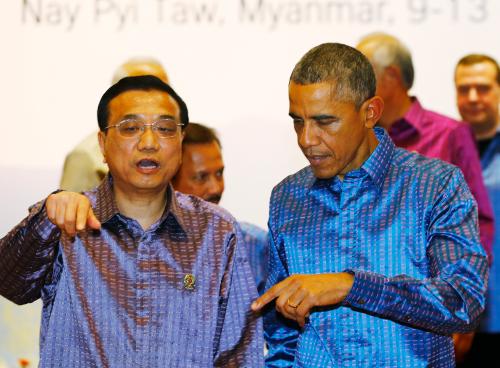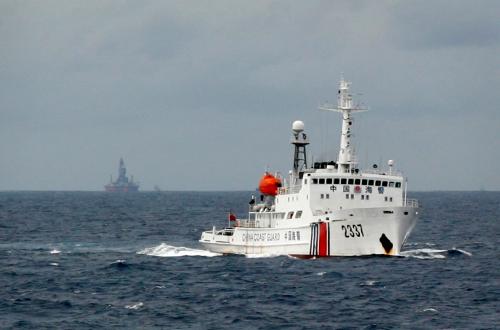Content from the Brookings Institution India Center is now archived. After seven years of an impactful partnership, as of September 11, 2020, Brookings India is now the Centre for Social and Economic Progress, an independent public policy institution based in India.
This article first appeared in ABP Live. The views are of the author(s).
On Tuesday, the Permanent Court of Arbitration in The Hague released its much-awaited ruling on a case brought by the Philippines against China on the South China Sea disputes. The decision marks the most high-profile development concerning the overlapping and intensifying territorial disputes, which directly involve China, the Philippines, Vietnam, Malaysia, Brunei, Indonesia, and Taiwan.
The future of the South China Sea has global implications, as jurisdiction over a few seemingly minor islands legitimises control over vast amounts of sea, which in turn enables access to valuable mineral and fishing resources and denies warships from traversing waters through which a significant amount of the world’s trade passes.
In recent months, lobbying over the disputes had reached fever pitch, with China going on a global public affairs blitz to make its case heard, including by briefing academic experts and journalists and taking out full page advertisements in newspapers in India, the United States, Europe, and elsewhere.
To read more, please click here.










Commentary
Op-edHere’s how the future of the South China Sea will have global implications
July 12, 2016